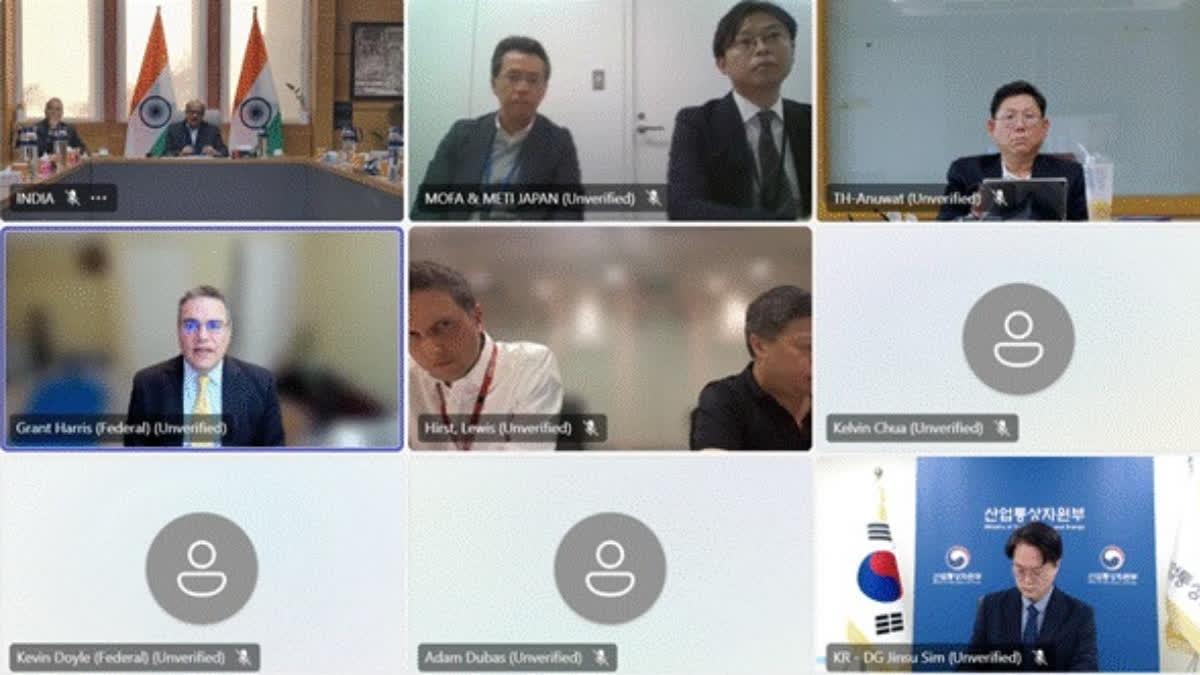New Delhi:The 14 members of the Indo-Pacific Economic Framework (IPEF) on Thursday discussed ways to promote greater chemicals trade and diversification of sources in the sector, an official statement said.
The discussions happened in the second meeting of the Supply Chain Council (SCC), which was set up by the IPEF bloc under the supply chain agreement.
The commerce ministry said that the chair (US) of the council shared an update on the APT (action plan team) on chemicals.
"In this, efforts are being made to promote greater chemicals trade and diversify sources through various work streams and enhance international business matchmaking," the ministry added.
Additionally, updates were shared on the critical minerals, semiconductors and pharma/healthcare action plan teams, emphasising collaboration and the development of practical work plans to address supply chain challenges in these sectors, it said.
India is the vice-chair of this council.
IPEF was launched on May 23, 2022, in Tokyo. The members are Australia, Brunei, Fiji, India, Indonesia, Japan, Korea, Malaysia, New Zealand, Philippines, Singapore, Thailand, Vietnam and the US.
The IPEF seeks to strengthen economic engagement and cooperation among partner countries, with the goal of advancing growth, economic stability and prosperity in the region.
The framework is structured around four pillars relating to Trade (Pillar I), Supply Chain Resilience (Pillar II), Clean Economy (Pillar III), and Fair Economy (Pillar IV).
India has joined Pillars II to IV of IPEF while it maintained an observer status in Pillar I.
India has proposed to host the next in-person meeting of the council early next year, the ministry said.
In September, the first SCC meeting in Washington led to the formation of Action Plan Teams (APT) focusing on six key areas -- semiconductors (led by the US), critical minerals (led by Australia), chemicals (led by the US) and pharma/healthcare sector (led by India), two sub-committees focusing on logistics and movement of goods (led by New Zealand), and data and analytics (led by Singapore).
"Collaborative efforts such as APT could play a pivotal role in reducing vulnerability on import dependency for active pharmaceutical ingredients (APIs)/medical devices," the ministry said.
The Supply Chain Council was formed under the agreement relating to Supply Chain Resilience to pursue targeted, action-oriented work to strengthen the supply chains for those sectors and goods most critical to national security, public health, and economic well-being in the India-Pacific region, which represents about 40 per cent of Global GDP and 28 per cent of Global trade in goods and service.
India signed the Supply Chain Resilience Agreement (Pillar-II) in November 2023, and it came into effect on February 24, 2024.
